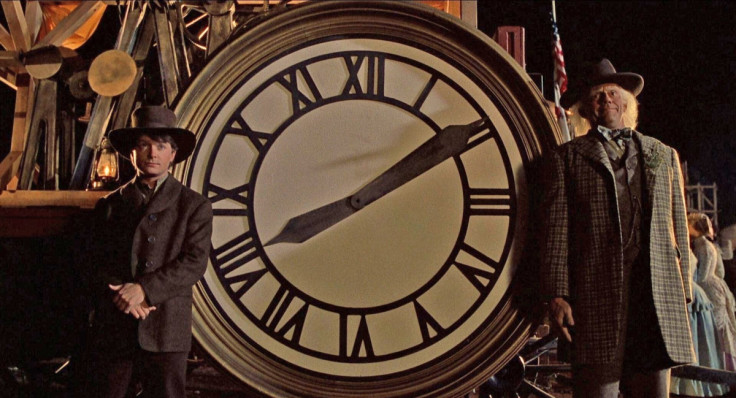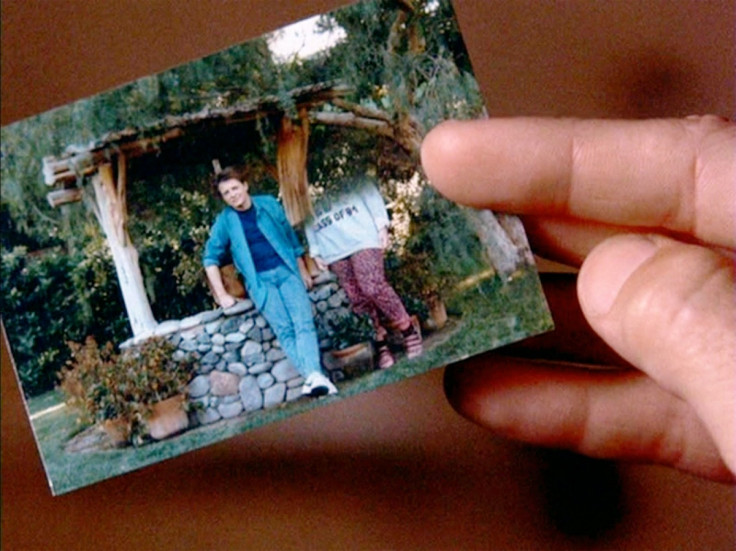Back To The Future Day 2015: Is time travel actually possible?

Back To The Future (BTTF) is one of the most popular film trilogies of all time, and although it is now three decades since the first movie came out, they are still relevant today for succeeding in exploring the tricky topic of time travel in a clever, entertaining and action-packed way.
We've now hit 21 October 2015, but science-fiction movies aside, is time travel actually possible? IBTimes UK asks leading physicists and mathematicians for their opinions.
"Going into the future is definitely possible, but going back to the past, that's difficult," Professor Jerome Gauntlett, chair in theoretical physics at Imperial College, tells IBTimes UK.
"There are two ways to go into the future – One way is to hop into a rocket. If you accelerated near the speed of light and then turned around and came back to Earth, as long as you're going close enough to speed of light, you will come back and everyone will have aged as many years as you like, e.g. if you wanted to come back in 30 years.
"It's a theoretical possibility, but it's difficult as you have to get in a rocket that can go close to the speed of light."
The second way, Gauntlett explains, is to take a spaceship very close to a black hole, which is known as an "event horizon". According to physics, if you cross the event horizon, you can never come back, but if you were to take the spaceship close to the black hole and then come back to Earth, you would find that the people on Earth would have aged.
Travelling to the past is not theoretically possible
However, when it comes to travelling back into the past, physicists don't believe this is possible, due to Einstein's theory of general relativity, which will officially be 100 years old in November.
"There are solutions to Einstein's mathematical equations that allow for time travel into the past but for various reasons, we don't think it's physically actually possible as some of the solutions would be unstable," explains Gauntlett, who served as the theoretical physics consultant on the Stephen Hawking biographical film The Theory Of Everything.
"There's more to physics than just the theory of general relativity – in fact, there's quantum physics. Some of these ideas for time travel would seem to have problems with the quantum theory."
One of the most often talked-about solutions to Einstein's theory of general relativity is the Gödel Spacetime Solution.
"In the Gödel solution, time is not a straight line, it's a circle. It just keeps repeating itself, so you can't tell what is past and what is future," Dr Christian Boehmer, who researches Einstein's equations and dark energy models for University College London (UCL)'s Department of Mathematics tells IBTimes UK.
"Sometimes you can find solutions that are quite weird. Some equations have a lot of solutions but many are disregarded as they have properties that are undesirable. That's how time machines become disproved. The mathematical equation is sound but it disagrees with too many principles we uphold."
Time Tourist and Grandfather Paradox

Apart from being theoretically impossible, time travel to the past also raises philosophical problems that are difficult to solve, such as the Grandfather Paradox, which has been explored by the Back To The Future films.
"The Grandfather Paradox supposes that if time travel to the past was possible and I find my grandfather in the past and shoot him, then if I did that, how would I be born?" explains Gauntlett, who is a BTTF fan himself.
"The other theory is the Time Tourist. If in the future, someone makes a time machine when you can come to the past, then why haven't we seen anyone from the future? But if in 50 years, someone made a time machine, but we've never seen them, that's why they can't exist."
Gauntlett brings up the example of another cult film – Bill And Ted's Excellent Adventure from 1989, which starred Keanu Reeves and Alex Winter as the title characters.

"In the film, Bill and Ted get into an awkward situation and they need to get a key. They solve the problem by saying: 'When we're out of this situation, we'll go to the future, put the key under the door mat. As long as we remember to do that, the key should be under the doormat,'" he said.
"And when they looked under the door mat, the key was there. So this supposes that if you want anything right now, just remember to go back to the past. So you can go to the future and have a great time, but you'll be pretty busy on the way back placing all the objects you needed."
Boehmer tells us that there is a workaround for the Grandfather Paradox, but it gets even more complicated.
"The workaround is that there isn't just one universe, there are parallel universes. You can have real solutions to equations that look like parallel universes. It doesn't contradict anything to have parallel universes. The idea would be that you travel into the past, you kill one of your ancestors, but this will only affect one universe, you'll be fine in all the other universes, except for the one in which you simply do not exist," he explains.
"You have parallel timelines and the world looks different in each of these timelines, and you can make a different decision in each of these time lines and each decision would result in a slightly different universe. But it's a bit pointless, and to the best of my knowledge there is no evidence whatsoever that there are parallel universes."
Quantum gravity might make time travel possible
According to Gauntlett, physicists have a great deal of confidence in the theory of general relativity and it has been proven to be true, as astronauts have gone to the International Space Station and returned about a thousandth of a second younger than the people on Earth. As the clock is fastest close to the centre of gravity on the Earth, this is why travelling far from the Earth and going near to a black hole will make time move slower.
At the moment, physicists are trying to combine general relativity with quantum theory – a theory that states that sometimes electrons behave like a particle or a wave – which would create the theory of quantum gravity.
"There's a small chance that eventually one day if we have a theory of quantum gravity, maybe in some small way that will make time travel possible, but personally I don't think so," he concludes.
"It's not a mainstream thrust of physics, but it's an evergreen idea that keeps popping up in different contexts. Each time a new version of something that is like a time machine is invented, someone finds a reason why it wouldn't work."
Professor Jerome Gauntlett and Imperial College will be celebrating 100 years of Einstein's theory of General Relativity with physicists around the world in November.
Are you celebrating Back To The Future Day on Wednesday 21 October 2015? Let us know what you're getting up to by tweeting us @IBTimesUKTech
© Copyright IBTimes 2025. All rights reserved.





















